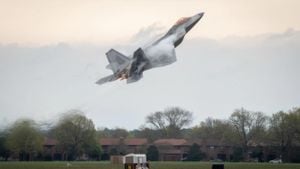Israel is at the center of intense discussions about its regional conflicts, particularly its approach toward negotiations and military tactics against groups like Hamas and Hezbollah. Recent analysis hints at significant shifts within the region, especially following events such as the ceasefire agreement with Lebanon and the ramifications of the October 7 attack.
The newly signed ceasefire between Israel and Hezbollah marks what could be seen as the beginning of another chapter for Israel—where it faces the urgent need to adapt its strategies based on decades of hard lessons from past confrontations. The focus has now turned to Lebanon, where the recent tensions have raised questions about whether Israel has finally learned from its previous mistakes.
On October 7, Israel faced one of its toughest challenges yet when Hamas instigated significant violence, taking the nation by surprise. This conflict is not the first of its kind; Israel has experienced multiple military rounds with Hamas since it withdrew from Gaza back in 2005. Previous operations like the Cast Lead and the Protective Edge missions bear haunting reflections of tactics and outcomes—often ending with Israel retreating back behind its high-tech borders, granting Hamas breathing space to regroup and rearm.
Hamas, learning from the ripple effects of the past, appears to engage in tactics reflective of Hezbollah's strategy post-2006 Second Lebanon War. The UN Security Council Resolution 1701, which aimed to disarm Hezbollah and enforce troop deployments, fell short due to inadequate implementation mechanisms. Ironically, the current ceasefire arrangement replicates elements of UNSC 1701's structure, calling again for Hezbollah to withdraw and for the Lebanese Armed Forces to establish control over border areas, ensuring Hezbollah's return is mitigated.
Critics raise poignant questions about the effectiveness of the new ceasefire, considering the failures of its precursor. The significant worry is whether Israel possesses the willpower to respond to Hezbollah's actions with the assertiveness required to prevent them from reestablishing their militant presence. After years of watching Hezbollah fortify its positions—convert villages to military strongholds, and stockpile impressive arsenals of weaponry—Israel must grapple with the strategic consequences of maintaining stability through restraint.
Meanwhile, Israel’s military assessments appear focused on retaining proactive measures, which will help to deter Hezbollah's capacity to threaten its borders again. For many Israelis, especially those residing near contentious areas, the want for immediate protection resonates deeply. The notion of relinquishing operational authority creates valid skepticism around the enforcement of the ceasefire without Israel being allowed to take decisive action against any violations.
There’s also the broader question of international involvement, particularly the United States, which Israel is eager to keep on its side. With the expected inclusion of U.S. oversight in monitoring Hezbollah during the ceasefire, Israel must tread carefully. Previous administrations have offered inconsistent stances toward Israel's security needs, leading to continued anxiety about future administrations and their responses.
Turning to Iran, discussions around the relationship between Iran and its allies, like Hamas and Hezbollah, are pivotal to Israel’s larger strategic vision. With negotiations and expectations tied to Iran, it's recognized as the primary adversary orchestrated behind the scenes. Observations suggest Israel risks downplaying the true challenge it faces—the ultimatum to curb Iran’s influence and its logistics to terror groups.
The dynamics between these players paints a complex picture. Many argue for Israel to strike decisively against Iran, thereby sending clear messages to its proxies. The suggestion of issuing ultimatums, mirroring strategies taken by world leaders like Russia's Vladimir Putin, drives the call for Israel to assert its sovereignty unapologetically. For many, the time for waiting is over; only firm action can translate to lasting security.
Simultaneously, many voices from within Arab media and liberal commentators have expressed suspicion and criticism toward Hamas, branding them as instigators of suffering for the Palestinian people. They argue Hamas contributes nothing but strife and destruction, often putting Iranian interests before those of Gazans. This sentiment highlights the perception of Hamas as not only being dangerous militarily but also detrimental to the very populace they claim to protect.
Personally shared narratives from Arab journalists and social media figures have condemned Hamas's leadership for their opulent lifestyles compared to the devastation of Gaza. There's outrage directed toward how Hamas uses Gazans as human shields, taking advantage of their suffering to assert their narrative of resistance. The cries for accountability resonate loudly, with many urging their governments to intervene and denounce Hamas’s tactics.
The path forward for Israel is undoubtedly laden with difficulty. With each ceasefire, the stakes increase, requiring precise navigation through regional tensions, fluctuated international relations, and persistent threats from formidable adversaries. Yet, as Israel analyses its strategies, there remains hope for newfound unity and collaboration—as negotiations dither, as patience wears thin, and as the realities on the ground demand thoughtful solutions over fleeting responses.
The essence of recent discussions calls upon Israel not just to manage its responses but to extend its reach beyond tumultuous borders—recognizing the region's volatility demands more than reactive engagement; it calls for ingenuity, strength, and unwavering commitment to long-term peace and security.



